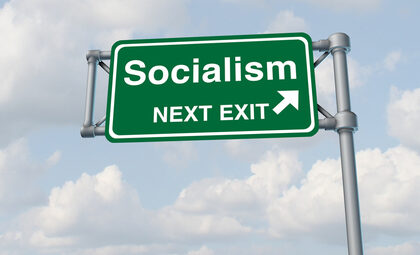The extensive policymaking authority that governments have given to experts in public health and epidemiology during the COVID-19 pandemic sparks a question: How much should we trust experts? Critics dismiss Republicans who voice distrust of experts as anti-science, yet it is only fair to note that even the best-informed experts know very little about complex economies and societies.
Frustration with experts does cross party lines. New York Governor Andrew Cuomo, a Democrat, recently remarked of experts’ forecasts of hospital usage, “They were all wrong.”
The “Wisdom of Crowds” argument, wonderfully explained by James Suroweicki, provides a first reason for doubt. Numerous seemingly poorly informed opinions turn out to be remarkably wise. Suroweicki relates a story from British scientist Francis Galton about a contest at a country fair in 1906. Nearly 800 people paid sixpence to guess the weight of an ox after being slaughtered and dressed; the average was only one pound off the mark.
The theory of efficient financial markets illustrates another reason for skepticism. An old joke was that darts thrown at the stock page were as reliable as a broker’s recommendations. The reason was that stock prices quickly incorporate all available information. With all information already priced in, a stock price is as likely to go up as down. The market can be consistently beaten only with inside information.
The central planning of socialism represents the most thorough application of expertise to an economy. Proponents thought that “scientific” socialism would replace the chaos and waste of the market with rationally ordered economic activity. Only a handful of economists in the 1930s and 1940s, notably Ludwig von Mises and Friedrich Hayek, argued consistently that socialism would fail.
Socialism failed in part due to the different nature of truths in the physical and social sciences. Truth in the physical sciences is general and timeless: water freezes at 32 degrees Fahrenheit and boils at 212 degrees. Truth in economics depends on time and place. Are trains the best way to travel between American cities? That was true in the latter half of the 1800s, but now flying and driving rightly dominate.
Another factor is the subjective value of goods and services, which is based on the wants, needs, and desires of consumers. Goods are valuable because people will pay money for them. People differ greatly from one another in their wants and needs, making it nearly impossible to predict what will be valuable, as illustrated by pet rocks in the 1970s and the variety of videos on YouTube with millions of views today.
Experts are at a disadvantage on economic questions. Truths cannot be learned from a textbook, may not hold everywhere (or anywhere tomorrow), and depend on idiosyncratic consumer preferences.
The other part of the argument against socialism is the miraculous degree of coordination in markets. Thousands of products from around the world are available in a grocery store without preordering a week in advance. The times we can’t get what we want, as with the recent toilet paper shortage, stand out.
By contrast, central planning in the former Soviet Union produced empty shelves. People would wait in line for hours to buy goods. Russians would join lines without even asking what people were waiting for.
No one would hold a high school dance without a committee to plan the event. Yet the market economy has no one in charge, no one with the power to command others. Coordination occurs voluntarily and is called spontaneous order. Moreover, the market does not merely repeat what was done yesterday; it offers improvements. No one ordered Mark Zuckerberg to start Facebook; he just decided to try.
Politicians rely on experts to devise policies because America has, in Abraham Lincoln’s words, a government “for the people.” In the United States, restrictions on our freedom can be justified only if they make us—as opposed to the rulers—better off.
Politicians consequently seek out the experts willing to justify their policies. Economists who do not understand the wisdom of the market, subjective value, and spontaneous order will offer unrealistic claims about how government will improve our lives. Such experts exhibit what Professor Hayek called “The Fatal Conceit.” We should not trust experts who are unaware of the limits of their expertise.












[…] that putting Joe Biden in the White House would bring to the United States. In theory and practice, socialism has and does mean government direction and planning of economic and social life. That is, government telling people what to produce, how […]
[…] in the halls of modern academia—those islands of government-funded educational socialism that are relatively free from the winds of market supply and demand—could dream their dreams of a […]